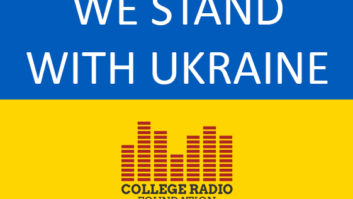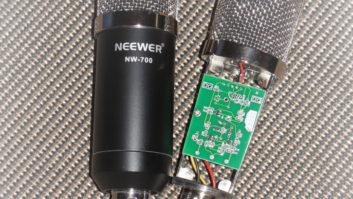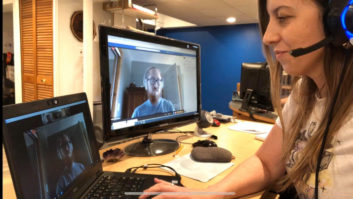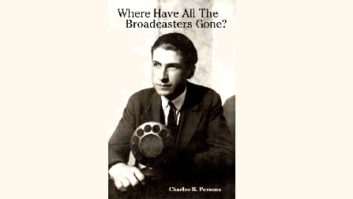
Chicago Public Media’s website, wbez.org, where visitors listen to the station’s programs using the SoundCloud player.
For radio stations, streaming success can be costly — even apart from any content rights expenses — because the more live and recorded content streams a broadcast company serves to listeners, the more it must pay to cover the bandwidth consumed. There are also costs associated with buying and maintaining onsite servers to host and provide the content, and hiring and paying staff to keep the system going.
These latter costs can be avoided by streaming content through a third-party content delivery network such as Akamai. But third-party hosting isn’t free. CDNs charge radio stations for these services.
One cost-effective solution to this problem is SoundCloud. This is a member-driven audio distribution platform that the company says reaches approximately 180 million people every month.Users include CNN (soundcloud.com/cnn) and “On Air With Ryan Seacrest” (soundcloud.com/ryanseacrest).
For an annual fee of $660, SoundCloud will host and serve out an unlimited amount of audio content uploaded by its members. That’s the top rate; lower-priced deals are available for users willing to accept caps on the number of hours unloaded and downloads accessed by listeners.
For radio stations wanting to test the waters, SoundCloud provides a free membership that allows up to 120 minutes of content (one or more tracks in total) to be uploaded, and 100 downloads per track.
One satisfied user is donor-supported Chicago Public Media and its WBEZ(FM) and Vocalo.org 89.5 FM. CPM.uses SoundCloud to stream WBEZ/Vocalo’s recorded audio to the world, in addition to Chicago Public Media’s own website streams. CPM also relies on SoundCloud to provide statistics about who is downloading what, and in what numbers.
“We’ve been uploading episodes of WBEZ’s music program ‘Sound Opinions’ onto SoundCloud,” said Matthew Green, the station director of digital product management.
Within “a week of uploading our very first show — a December 2005 interview with Velvet Underground founding member John Cale — we had received 700 hits on SoundCloud,” he said. “In contrast, on our own website (www.soundopinions.org), we only had four hits to this program for the entire calendar year.”
To the cloud
Based in Germany, SoundCloud was created in 2007 by sound designer Alexander Ljung and artist Eric Wahlforss. They were fed up with not having an online space for sharing audio content with other artists.
“We’d be using Flickr for our photos, and Vimeo for our videos,” said Ljung in a 2009 interview with Wired.com. “We didn’t have that kind of platform for our music.”
What started as an online audio collaborative space grew into something larger.
“Today, SoundCloud is a social sound platform that gives users unprecedented access to the world’s largest community of music and audio creators,” said Jim Colgan, the company’s senior content relations manager, audio, and a former producer/digital experimenter for WNYC(AM/FM) in New York.
He said the platform “allows everyone to discover original music and audio, connect with each other and share their sounds with the world.” Further, sound creators can use it to record, post and share sounds across the Internet, and receive stats and feedback from the community.
A December article in the blog The Next Web quoted Wahlforss as saying the number of registered users had grown to approach 30 million, up from 10 million at the start of 2012. But SoundCloud has preferred to emphasize total reach. It says it reaches the equivalent of 8 percent of the Internet population monthly, approximately 180 million people. Radio World asked how it derived that number.
“We have discussed registered users in the past, but that’s not a fair reflection of our actual platform’s reach,” Colgan replied via email, “because people could be using SoundCloud via playing our widgets, SoundCloud.com, m.soundcloud.com [its mobile site], integrations with key partners such as Facebook and Tumblr, our open API, etc. ‘Reaches’ effectively looks at all of these properties and provides a fairer representation of our platform’s ability.”
Benefits
SoundCloud execs say the platform is affordable for broadcasters because the site treats them like any other audio contributor: $660 per year covers unlimited audio storage and service to listeners, whether the member is a private individual, a radio station or a group owner.
Chicago Public Media was drawn by the infrastructure that supports it. “The big attraction for us was their audio player,” said Matthew Green. “Not only is it compatible with older browsers and newer mobile platforms, but it is something that they manage; not us. This frees our two tech people to do other things, saving us money at the same time.”
He found SoundCloud’s tech support team responsive whenever any issues come up.
“I’ve been very impressed with their professionalism and willingness to help out,” Green said. “By the way, we do retain ownership of anything we post on SoundCloud, so there are no copyright issues to worry about.”
SoundCloud’s biggest benefit is that it provides broadcasters with a way to reach a much larger audience, in a community that is attuned to all things audio. It also interfaces members’ audio feeds with social media outlets like Twitter, Facebook, Pinterest and Tumblr.
“Radio stations use the platform to help them reach an audience far beyond the airwaves,” said Colgan. “For example, WBEZ in Chicago uploads its daily and weekly programs to SoundCloud, embeds the tracks on its website and posts to the station’s other social media streams. This way they reach the community of listeners on SoundCloud, the station’s own website visitors, and the following they already have on Facebook and Twitter.”
SoundCloud’s social media clout is impressive. When this article was written, the website had achieved more than a million “likes” on Facebook.Every time SoundCloud posts something new there, all of these people are linked to it. Meanwhile, SoundCloud had approximately 542,000 Twitter followers as of Feb. 11.
“At SoundCloud, it’s more about stations tapping into the community on our platform,” said Colgan. “The stations are already creating the content; they’re the experts at that, after all. They use SoundCloud to reach and engage with new and existing listeners in the best possible way, to get their content heard on the Web.”
The company believes that it offers radio stations — commercial as well as noncoms — an extremely affordable way to serve content out to the world, to cut streaming costs while improving audience reach.
James Careless is a longtime contributor to Radio World. He wrote recently about Morse code enthusiast Jim Charlong.












